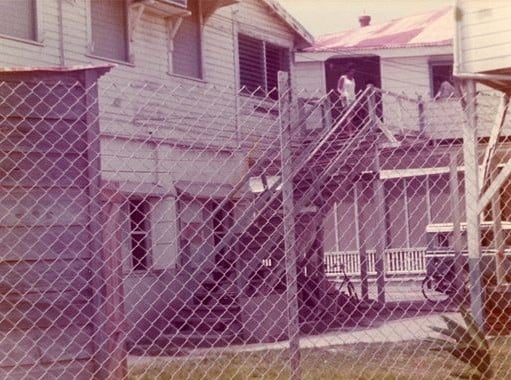
Health care in Belize, while improving, is not of the quality you would expect in other parts of the world. Let’s take a look at its public and private healthcare system, the options you have as an expat retiree, and where to go for the best medical treatment.
Belize Retirement: Health Care Improvements and Shortcomings
Belize has private and public healthcare systems and facilities, all overseen by the Ministry of Health. The need to analyze and reform the Belize health care system became a priority in 1994, when a joint study was undertaken by the government of Belize and the Inter-American Development Bank.
This was about 15 years after Belizean independence and as the country was becoming a tourist destination.

This study led to the Health Sector Reform Act of 2000. Its goals were to improve the access, quality and equitable delivery of care throughout the country and in both the public and private sectors.
The country was divided into four health care regions (North, South, Central and Western). Primary health care (offered by a general practitioner or nurse practitioner) and secondary health care (offered by a specialist) are available in all sectors, while tertiary care (offered in a specializing hospital) is offered in the central region only.
Good to Know
In 2008, Belize created the Health Information System to ensure an ongoing record of each person’s health history. This resulted in more comprehensive and coherent treatment.
2007-2011 saw the growth and regulation of primary health care, with the institution of minimum standards and increased accessibility. Greater focus was placed on mental health as well, with the creation of community-based assistance to those in need.
The goals of these clinics were to provide not only preventive and management assistance but help with rehabilitation into society.
As hard as people are working to improve the Belize health care system, it is still chronically short of medicines, practitioners and equipment, especially outside of Belize City.
This is due, entirely, to the lack of funds. Even where there is state of the art equipment, such as the CAT scan in Karl Heusner Hospital in Belize City, there are often no funds to pay for trained personnel to run it.
To remedy the chronic shortness of funds the Belize National Health Insurance plan (NHI) was created. You need to be registered in the Belize Social Security Board to access health care in the public system.
A branch of this ministry is now implementing the NHI program to fund health care at all levels. This project started in south Belize City and now includes all of southern Belize.

Belize Retirement: The Public Health Care System
Outside of Belize City there are 7 district hospitals, located in the capitals of the 7 districts of Belize. 3 of these district hospitals also serve as regional hospitals; one in Orange Walk Town (Northern Region), one in Belmopan (Western Region), the nation’s capital, and one in Dangriga (Southern Region).
The regional hospitals are capable of delivering a greater range of services than their district counterparts.
Good to Know
Public health care is free for all residents and citizens of Belize. This includes expats who have a residency visa.
In addition, 60 or so clinics are scattered throughout the country in rural areas, with a total of some 700 beds. These units provide medical and dental care in the countryside but are often understaffed and lack equipment or medicine, due to under financing.
Some clinics, such as the one in the Corozal area, are rarely used; people prefer to go to Chetumal in Mexico. Here a visit to the doctor’s office will cost about $10 USD.
Or they take the bus to Merida for an inexpensive hospital stay. In the west, people often trek to Guatemala City for the same reasons.
Belize Retirement: The Private Health Care System
Private health care services about 15% of Belize’s population. They are the primary health care providers for expats and tourists alike. The system is managed by the same Ministry of Health with regard to standards and is funded to some extent by the government.
Private healthcare facilities charge fees, which are – compared to the U.S. and Europe – much more affordable. For a visit to a doctor you usually pay around $25 USD, and costs for a room in one of the public hospitals start below $50 USD.
There are three main hospitals under the private health care umbrella:
La Loma Luz, a 20 bed facility run by the 7th Day Adventist Church laymen. It is located in St. Ignacio in the west of Belize. This is a not-for-profit facility.

Universal Healthcare Services is a fifty bed facility in Belize City, now owned by an American company and called Belize Healthcare Partners.

Belize Retirement: Health Care Alternatives
To sum it up, health care in Belize, while improving, is not of the quality you would expect in other parts of the world.
To have access to better healthcare options, you can take “the hospital bus” from Corozal to Merida and Playa del Mar via Chetumal. Another alternative is to go to Guatemala City through the western exits of Belize.
For your Belize retirement, I strongly suggest you get private health insurance.
I think I’m being fairly emphatic there! The private health care system accepts insurance from outside international providers (here are some of the best). Make sure your policy covers
- emergency transportation to a recognized medical facility, either in Mexico or your home country,
- your stay and care wherever you go, but particularly the U.S. (if that’s where you want to be treated).
Next we’ll talk about the culture and the people of Belize, so… don’t worry, be happy!



